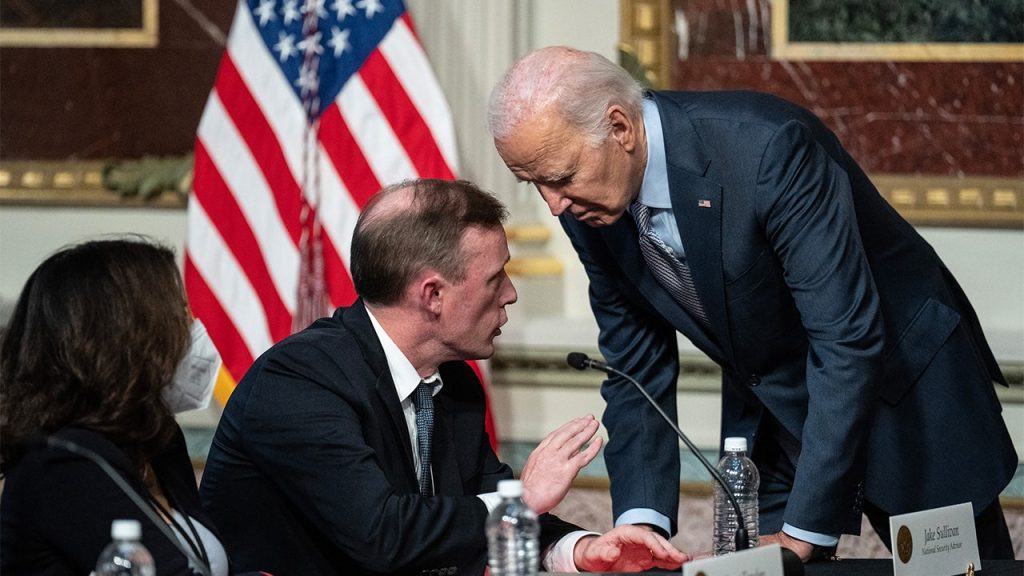President Biden was recently presented with a series of strike options by National Security Adviser Jake Sullivan in case Iran attempts to develop a nuclear weapon. While Biden has vowed not to let Iran obtain nuclear weapons, he has not signed off on any plans to strike Iran’s nuclear program yet. It is unclear what actions Iran would need to take for the Biden administration to respond with direct hits, as there are reports that Iran has stockpiled near-weapons-grade uranium and is bolstering its weaponization capabilities. The president was briefed on various scenarios and response options, but no final decisions have been made yet.
Despite tensions between Israel and Iran and warnings against hitting Tehran’s nuclear program, some aides close to President Biden believe that the U.S. has an “imperative” and “opportunity” to strike Iran’s nuclear ambitions. The degraded state of Iran’s air defenses, missile capabilities, and weakened proxy forces could improve the chances of a successful strike and reduce the likelihood of Iranian retaliation. National Security Adviser Sullivan did not advise the president to take action but presented him with various scenarios to consider. The urgency of the situation and whether Iran has taken specific steps to justify a military strike just weeks before a new administration takes over remains a key point of discussion.
Recent public statements from Iranian officials have raised concerns about potential changes in Iranian doctrine and the possibility of accelerating their nuclear program in response to strategic blows. Sullivan highlighted the impact of these blows on Iran and the potential risks they pose in terms of Iran’s nuclear ambitions. He emphasized the importance of remaining vigilant as Iran faces various choices in response to recent developments. The Biden administration is carefully monitoring the situation and evaluating the potential risks and implications of Iran’s actions.
In light of Iran’s recent launch of a rocket with the heaviest-ever payload into space, concerns over its nuclear program have been heightened. The degraded nature of Iran’s air defenses, missile capabilities, and weakened proxy forces have led to discussions within the Biden administration about the potential for military strikes against Iran’s nuclear facilities. While no final decisions have been made, the administration is considering various scenarios and response options to address the threat posed by Iran’s nuclear ambitions. Sullivan and other aides to the president believe that the current situation presents an opportunity to deter Iran from developing nuclear weapons.
As tensions between Iran and the U.S. continue to escalate, President Biden is faced with critical decisions regarding how to address Iran’s nuclear program. The potential for military strikes against Iran’s nuclear facilities is being actively debated within the administration, with various factors being taken into consideration, including the degraded state of Iran’s defenses and the weakened position of its proxy forces. The urgency of the situation and the need to prevent Iran from obtaining nuclear weapons are key concerns for the administration. As the situation continues to evolve, President Biden and his advisers are closely monitoring Iran’s actions and considering possible responses to safeguard national security interests.


